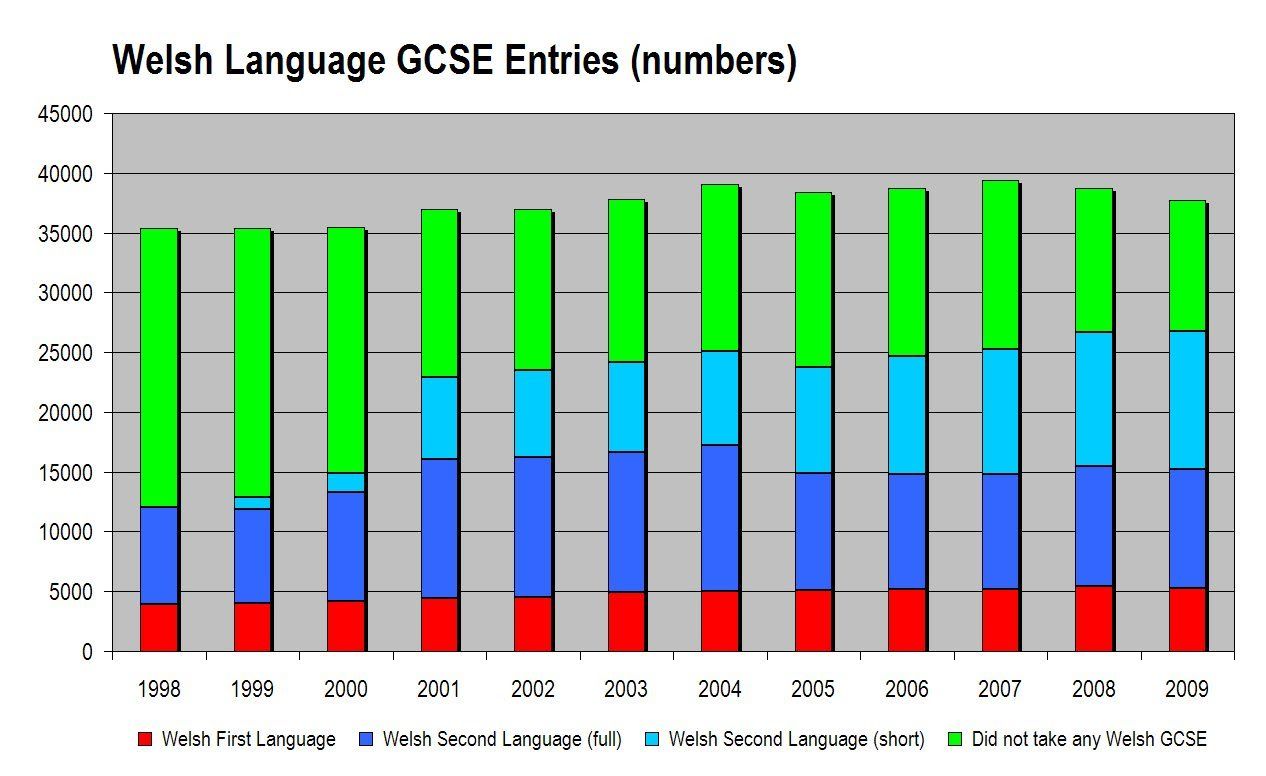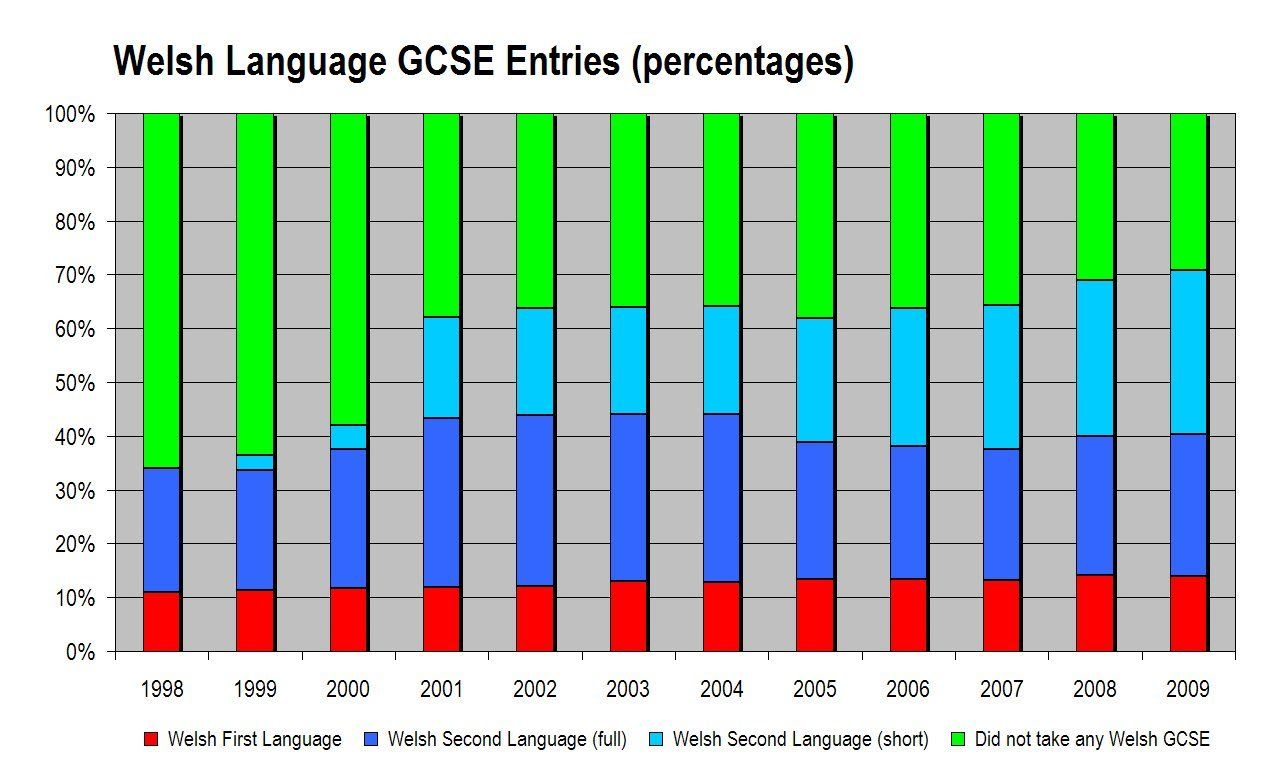Following yesterday's post, I've done a bit more number crunching regarding the trends in numbers taking Welsh GCSEs over the past twelve years. As a picture paints a thousand words, I've condensed this down to two charts. Click the images to open them at a larger size.
For those that like numbers, the full data can be downloaded as a spreadsheet from here. In summary, the basic trends are:
• The percentage taking WFL has risen fairly steadily to now stand at 14%. However this is still a good way below the 20% that would be expected based on those attending WM schools.
• The WSL short course exam was introduced on a pilot basis in 1999, and was fully fledged from 2001 onwards. This coincided with Welsh becoming compulsory at Key Stage 4. As a result, there was a large fall in the percentage not taking any Welsh GCSE from more than 60% to less than 40%
• Since then the percentage not taking any Welsh GCSE has fallen, but more gradually, and now stands at 29%
• After 2004 (i.e. five years after 1999) there was a marked shift in the percentages taking the full and short course versions of the WSL GCSE. The percentages taking both versions have increased since then, but the figure for those taking the full version has not returned to the 2004 level.
There is some concern over the usefulness of the WSL short course, and in particular that the numbers of children taking the full WSL GCSE dropped as a result of its introduction. This was briefly mentioned in the BBC's story yesterday:
Derek Stockley, the WJEC's director of examinations and assessment, said: "I think on the whole the results are heartening and we congratulate the pupils and their teachers for their success. But there are certain things that leap out at us as we look at the results.
"It's worrying that there are still more people doing the Welsh second language short course than the full course. That's not desirable either educationally or linguistically for the future of the Welsh language in Wales and for our students."
My own view is slightly different. I think that 11,000 children not taking any form of Welsh Second Language GCSE at all is a much bigger problem than whether children in EM schools take the full or short GCSE. So I would be quite happy to see the numbers taking the short GCSE increase further, provided that the numbers taking the full GCSE also increase. We need to reach the point where all children take some form of Welsh GCSE.
That said, I think there are some fundamental problems about how we teach Welsh in EM schools. In essence we need to supplement the formal lessons by using Welsh in other situations, so as to reinforce what has been learned. Indeed this is exactly what has started to happen. It is well worth reading this report by Estyn on teaching Welsh as a second language in English-medium schools.

However, I would still encourage every parent who wants their children to be able to speak Welsh—and it is worth repeating the fact that 81% of people in Wales think it is important that children learn to speak Welsh, with only 7% disagreeing—to send them to a Welsh-medium school. As things stand at present, it is by far the best way of ensuring that our children grow up equally competent in both languages.




1 comments:
It's amazing that this situation has continued for so long, there is no reason why virtually every child in Wales should not be entered for the full course GCSE. The problem is the lack of interest, or even hostility, of many headteachers to the subject, and a lack of political will by the WAG to force through change.
My wife teaches in south-east Gwent, in one of the most anglicised parts of Wales imaginable. All pupils are entered for the full course Welsh GCSE, and results are comparable to English and Maths. She has had the support of a headteacher who was prepared to treat Welsh equally with other subjects, but there are constant pressures from the rest of the senior management to cut teaching hours and introduce the short course.
My wife has heard through the grapevine several cases where previously successful Welsh departments were decimated following a change of headteacher. Pressure should be brought to bare from the LEA and Estyn to maintain the full course wherever it is taught.
Post a Comment